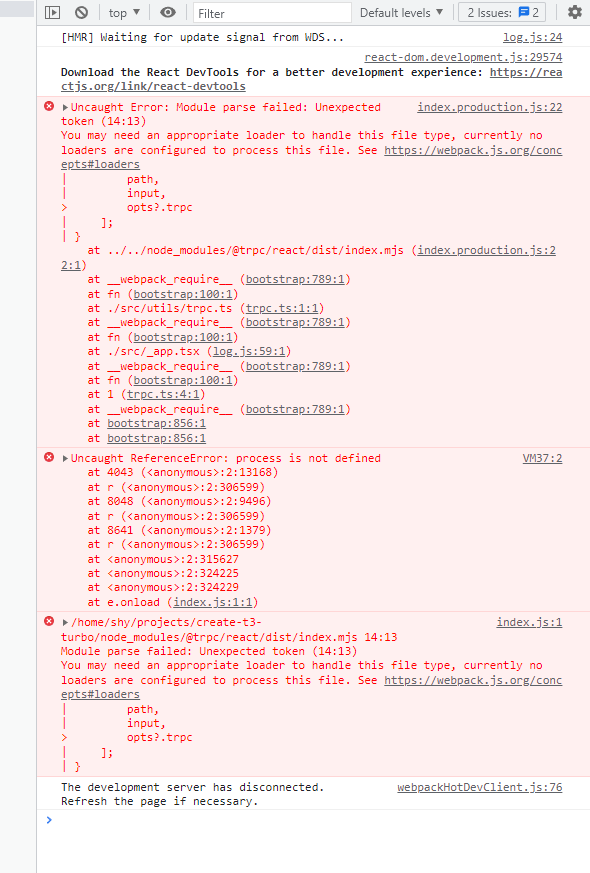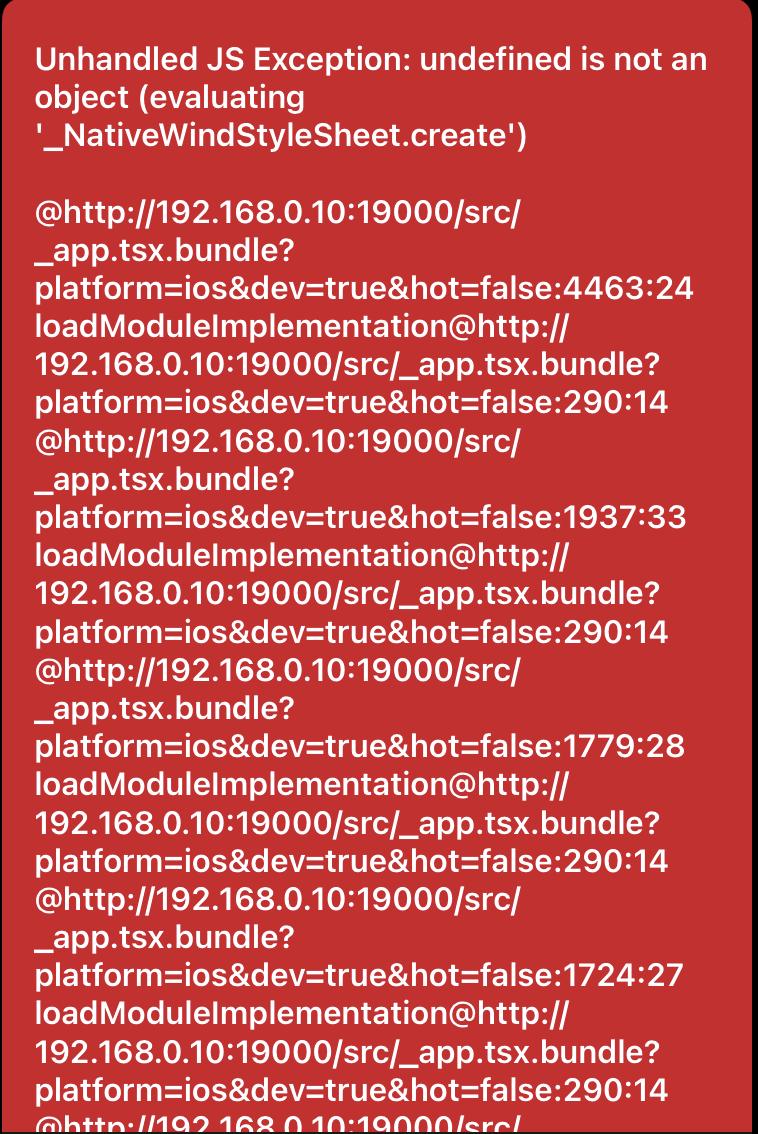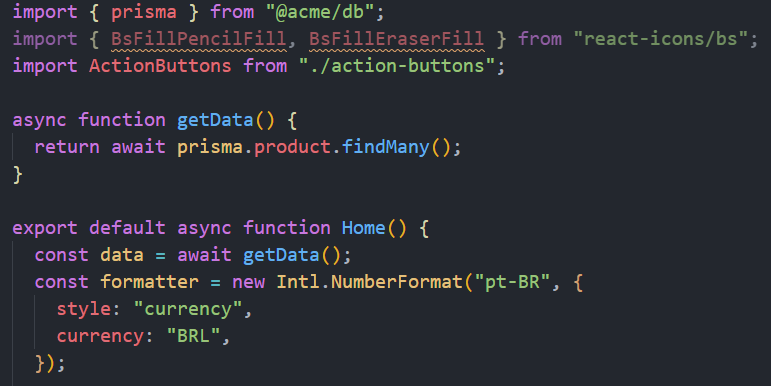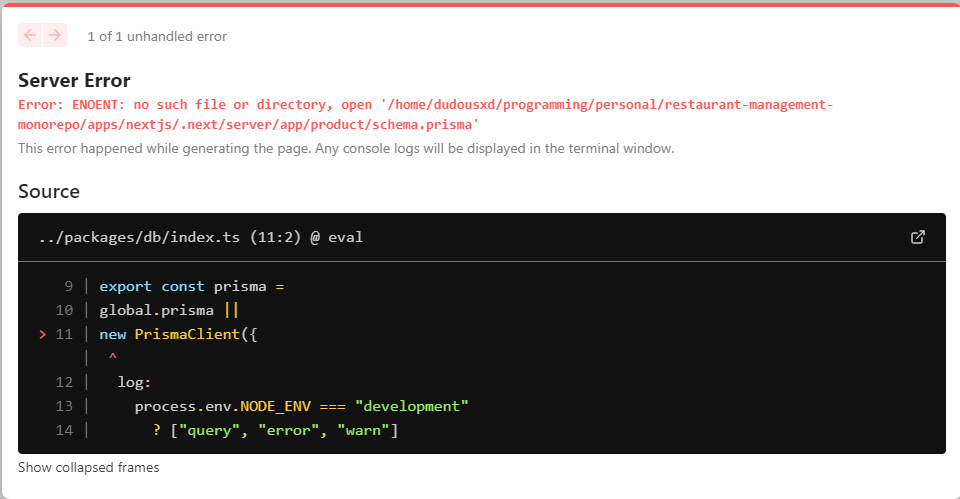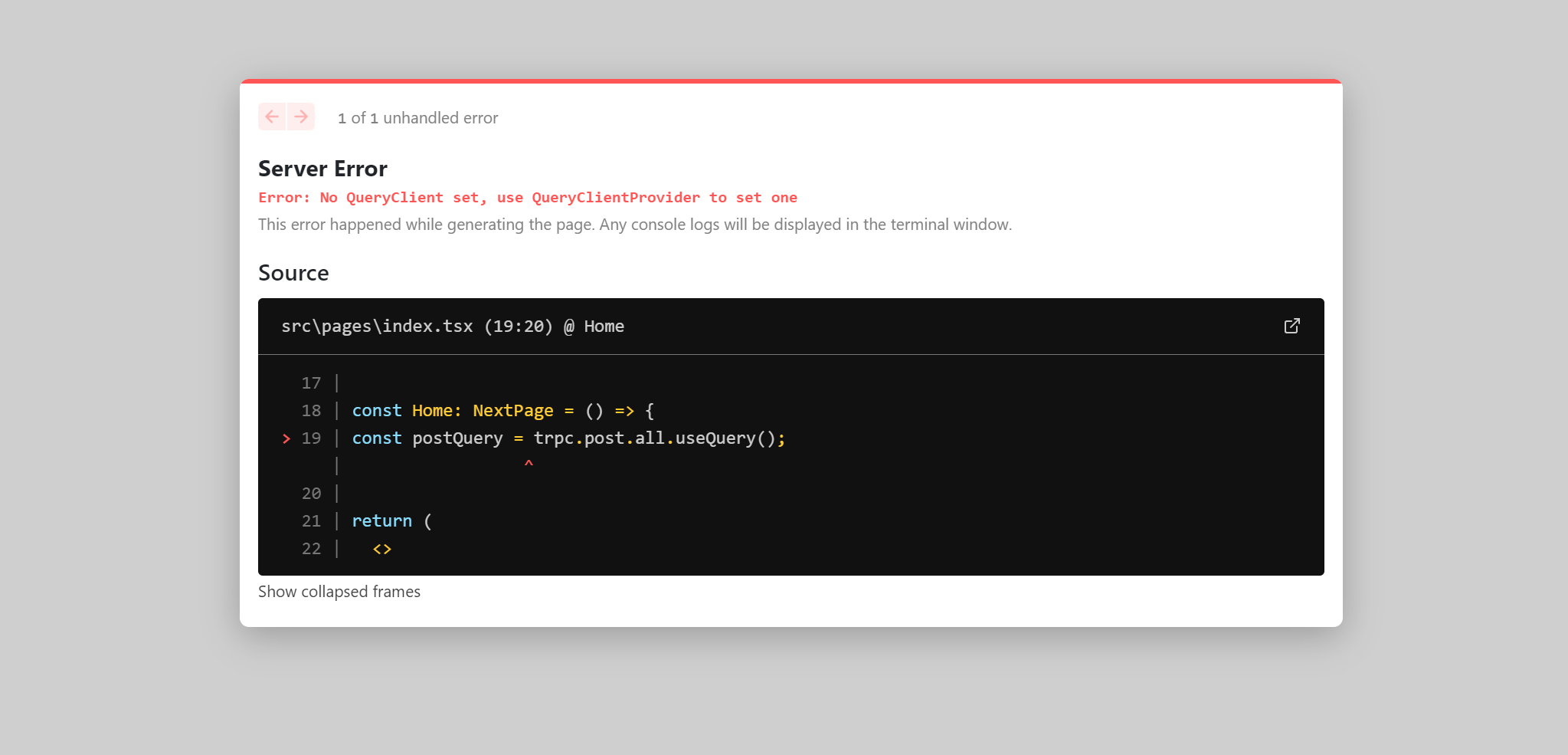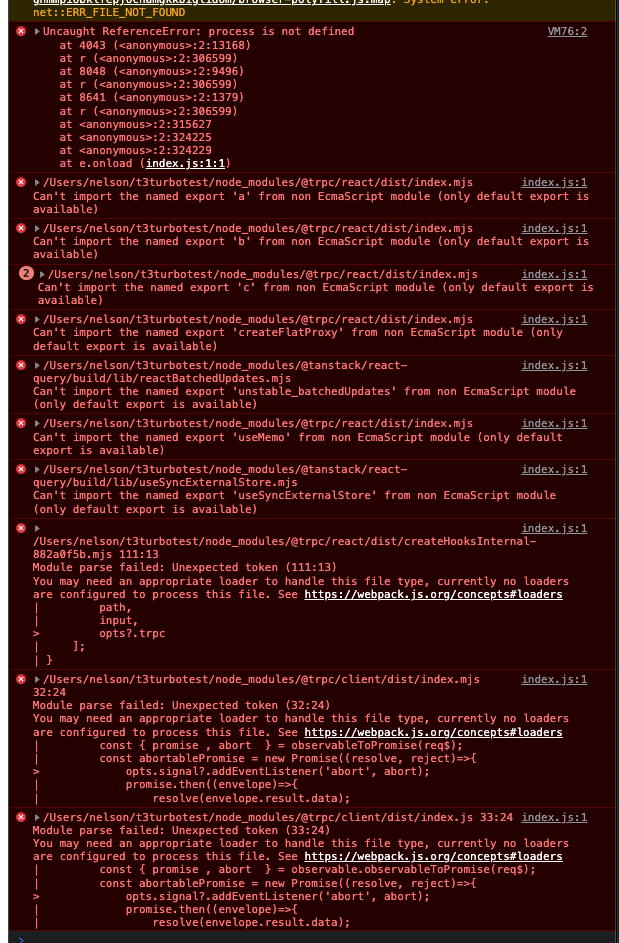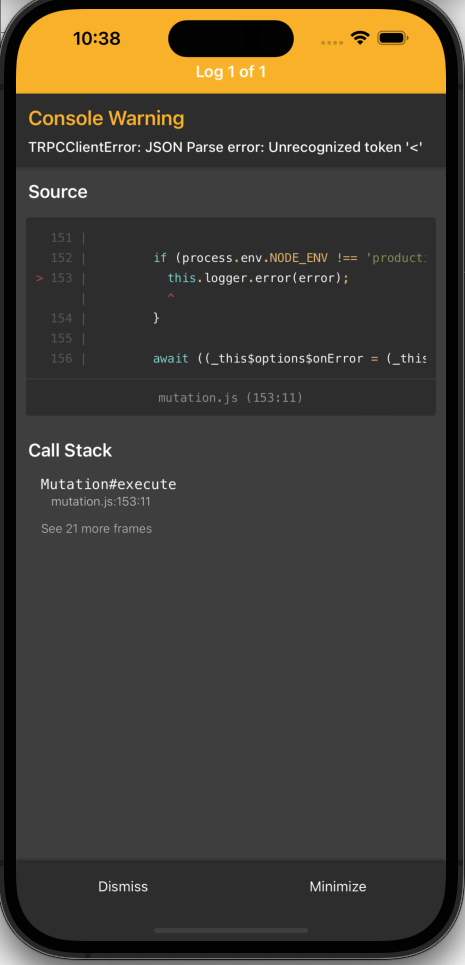Note Due to high demand, this repo now uses the
appdirectory with some new experimental features. If you want to use the more traditionalpagesrouter, check out the repo before the update.
Note OAuth deployments are now working for preview deployments. Read deployment guide and check out the source to learn more!
There are two ways of initializing an app using the create-t3-turbo starter. You can either use this repository as a template:
or use Turbo's CLI to init your project (use PNPM as package manager):
npx create-turbo@latest -e https://github.com/t3-oss/create-t3-turboEver wondered how to migrate your T3 application into a monorepo? Stop right here! This is the perfect starter repo to get you running with the perfect stack!
It uses Turborepo and contains:
.github
└─ workflows
└─ CI with pnpm cache setup
.vscode
└─ Recommended extensions and settings for VSCode users
apps
├─ auth-proxy
| ├─ Nitro server to proxy OAuth requests in preview deployments
| └─ Uses Auth.js Core
├─ expo
| ├─ Expo SDK 49
| ├─ React Native using React 18
| ├─ Navigation using Expo Router
| ├─ Tailwind using NativeWind
| └─ Typesafe API calls using tRPC
└─ next.js
├─ Next.js 14
├─ React 18
├─ Tailwind CSS
└─ E2E Typesafe API Server & Client
packages
├─ api
| └─ tRPC v11 router definition
├─ auth
| └─ Authentication using next-auth. **NOTE: Only for Next.js app, not Expo**
├─ db
| └─ Typesafe db calls using Drizzle & Planetscale
└─ ui
└─ Start of a UI package for the webapp using shadcn-ui
tooling
├─ eslint
| └─ shared, fine-grained, eslint presets
├─ prettier
| └─ shared prettier configuration
├─ tailwind
| └─ shared tailwind configuration
└─ typescript
└─ shared tsconfig you can extend from
In this template, we use
@acmeas a placeholder for package names. As a user, you might want to replace it with your own organization or project name. You can use find-and-replace to change all the instances of@acmeto something like@my-companyor@project-name.
Note The db package is preconfigured to use PlanetScale and is edge-bound with the database.js driver. If you're using something else, make the necessary modifications to the schema as well as the client and the drizzle config. If you want to switch to non-edge database driver, remove
export const runtime = "edge";from all pages and api routes.
To get it running, follow the steps below:
# Install dependencies
pnpm i
# Configure environment variables
# There is an `.env.example` in the root directory you can use for reference
cp .env.example .env
# Push the Drizzle schema to the database
pnpm db:push-
Make sure you have XCode and XCommand Line Tools installed as shown on expo docs.
NOTE: If you just installed XCode, or if you have updated it, you need to open the simulator manually once. Run
npx expo startin the root dir, and then enterIto launch Expo Go. After the manual launch, you can runpnpm devin the root directory.+ "dev": "expo start --ios", -
Run
pnpm devat the project root folder.
-
Install Android Studio tools as shown on expo docs.
-
Change the
devscript atapps/expo/package.jsonto open the Android emulator.+ "dev": "expo start --android", -
Run
pnpm devat the project root folder.
Run the ui-add script to add a new UI component using the interactive shadcn/ui CLI:
pnpm ui-addWhen the component(s) has been installed, you should be good to go and start using it in your app.
To add a new package, simply run pnpm turbo gen init in the monorepo root. This will prompt you for a package name as well as if you want to install any dependencies to the new package (of course you can also do this yourself later).
The generator sets up the package.json, tsconfig.json and a index.ts, as well as configures all the necessary configurations for tooling around your package such as formatting, linting and typechecking. When the package is created, you're ready to go build out the package.
No. Solito will not be included in this repo. It is a great tool if you want to share code between your Next.js and Expo app. However, the main purpose of this repo is not the integration between Next.js and Expo — it's the code splitting of your T3 App into a monorepo. The Expo app is just a bonus example of how you can utilize the monorepo with multiple apps but can just as well be any app such as Vite, Electron, etc.
Integrating Solito into this repo isn't hard, and there are a few official templates by the creators of Solito that you can use as a reference.
I've left this kind of open for you to decide. Some options are Clerk, Supabase Auth, Firebase Auth or Auth0. Note that if you're dropping the Expo app for something more "browser-like", you can still use Next-Auth.js for those. See an example in a Plasmo Chrome Extension here.
The Clerk.dev team even made an official template repository integrating Clerk.dev with this repo.
During Launch Week 7, Supabase announced their fork of this repo integrating it with their newly announced auth improvements. You can check it out here.
No, it does not. The api package should only be a production dependency in the Next.js application where it's served. The Expo app, and all other apps you may add in the future, should only add the api package as a dev dependency. This lets you have full typesafety in your client applications, while keeping your backend code safe.
If you need to share runtime code between the client and server, such as input validation schemas, you can create a separate shared package for this and import it on both sides.
Note Please note that the Next.js application with tRPC must be deployed in order for the Expo app to communicate with the server in a production environment.
Let's deploy the Next.js application to Vercel. If you've never deployed a Turborepo app there, don't worry, the steps are quite straightforward. You can also read the official Turborepo guide on deploying to Vercel.
-
Create a new project on Vercel, select the
apps/nextjsfolder as the root directory. Vercel's zero-config system should handle all configurations for you. -
Add your
DATABASE_URLenvironment variable. -
Done! Your app should successfully deploy. Assign your domain and use that instead of
localhostfor theurlin the Expo app so that your Expo app can communicate with your backend when you are not in development.
The auth proxy is a Nitro server that proxies OAuth requests in preview deployments. This is required for the Next.js app to be able to authenticate users in preview deployments. The auth proxy is not used for OAuth requests in production deployments. To get it running, it's easiest to use Vercel Edge functions. See the Nitro docs for how to deploy Nitro to Vercel.
Then, there are some environment variables you need to set in order to get OAuth working:
- For the Next.js app, set
AUTH_REDIRECT_PROXY_URLto the URL of the auth proxy. - For the auth proxy server, set
AUTH_REDIRECT_PROXY_URLto the same as above, as well asAUTH_DISCORD_ID,AUTH_DISCORD_SECRET(or the equivalent for your OAuth provider(s)). Lastly, setAUTH_SECRETto the same value as in the Next.js app for preview environments.
Read more about the setup in the auth proxy README.
Deploying your Expo application works slightly differently compared to Next.js on the web. Instead of "deploying" your app online, you need to submit production builds of your app to app stores, like Apple App Store and Google Play. You can read the full guide to distributing your app, including best practices, in the Expo docs.
-
Make sure to modify the
getBaseUrlfunction to point to your backend's production URL:create-t3-turbo/apps/expo/src/utils/api.tsx
Lines 20 to 37 in 656965a
-
Let's start by setting up EAS Build, which is short for Expo Application Services. The build service helps you create builds of your app, without requiring a full native development setup. The commands below are a summary of Creating your first build.
# Install the EAS CLI pnpm add -g eas-cli # Log in with your Expo account eas login # Configure your Expo app cd apps/expo eas build:configure
-
After the initial setup, you can create your first build. You can build for Android and iOS platforms and use different
eas.jsonbuild profiles to create production builds or development, or test builds. Let's make a production build for iOS.eas build --platform ios --profile production
If you don't specify the
--profileflag, EAS uses theproductionprofile by default. -
Now that you have your first production build, you can submit this to the stores. EAS Submit can help you send the build to the stores.
eas submit --platform ios --latest
You can also combine build and submit in a single command, using
eas build ... --auto-submit. -
Before you can get your app in the hands of your users, you'll have to provide additional information to the app stores. This includes screenshots, app information, privacy policies, etc. While still in preview, EAS Metadata can help you with most of this information.
-
Once everything is approved, your users can finally enjoy your app. Let's say you spotted a small typo; you'll have to create a new build, submit it to the stores, and wait for approval before you can resolve this issue. In these cases, you can use EAS Update to quickly send a small bugfix to your users without going through this long process. Let's start by setting up EAS Update.
The steps below summarize the Getting started with EAS Update guide.
# Add the `expo-updates` library to your Expo app cd apps/expo pnpm expo install expo-updates # Configure EAS Update eas update:configure
-
Before we can send out updates to your app, you have to create a new build and submit it to the app stores. For every change that includes native APIs, you have to rebuild the app and submit the update to the app stores. See steps 2 and 3.
-
Now that everything is ready for updates, let's create a new update for
productionbuilds. With the--autoflag, EAS Update uses your current git branch name and commit message for this update. See How EAS Update works for more information.cd apps/expo eas update --autoYour OTA (Over The Air) updates must always follow the app store's rules. You can't change your app's primary functionality without getting app store approval. But this is a fast way to update your app for minor changes and bug fixes.
-
Done! Now that you have created your production build, submitted it to the stores, and installed EAS Update, you are ready for anything!
The stack originates from create-t3-app.
A blog post where I wrote how to migrate a T3 app into this.



